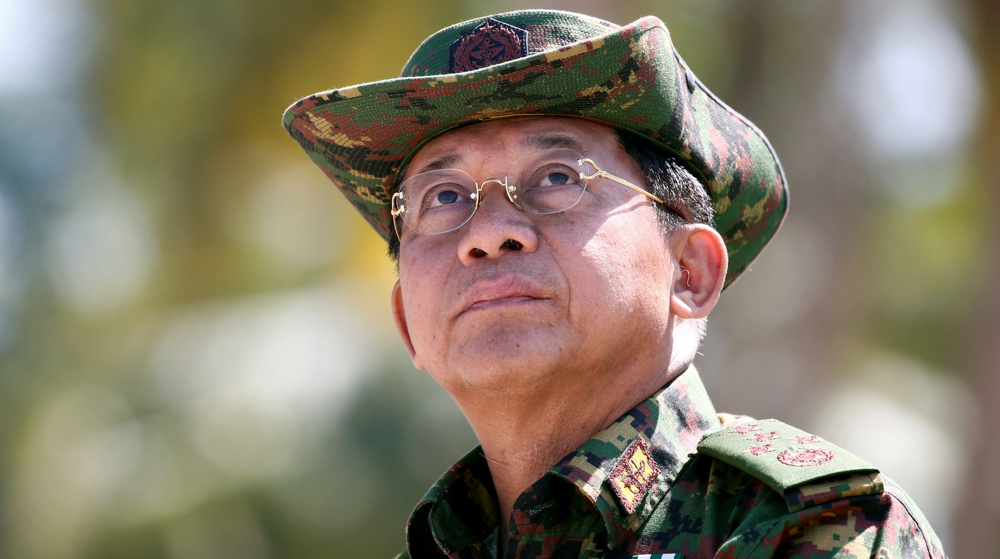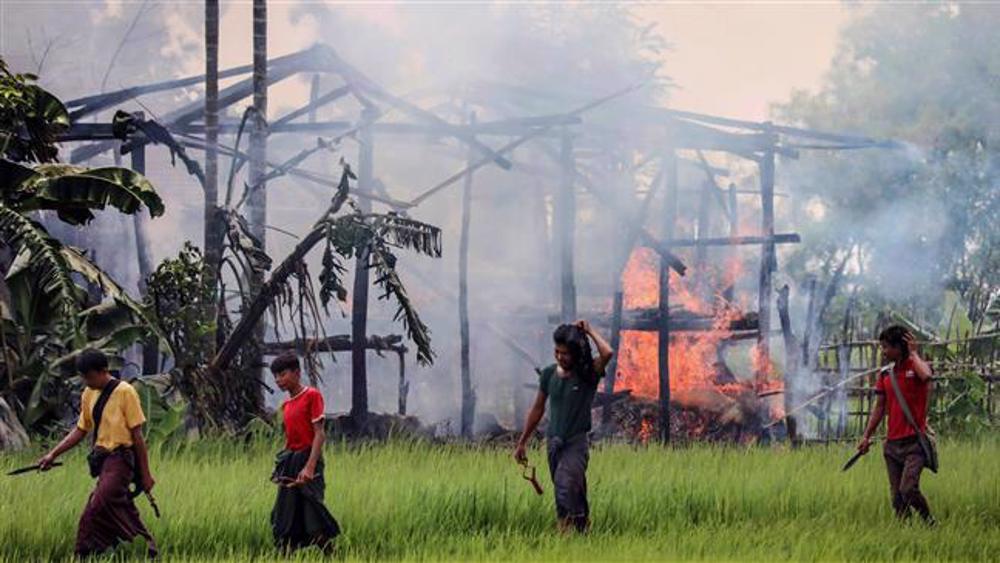Amnesty reveals: Myanmar military figures profiting from secretive conglomerate
Amnesty International says Myanmar’s military figures — including those believed to have committed serious human rights abuses — have financial dealings with a secretive conglomerate with links to international businesses.
In a report released on Thursday, the human rights group revealed that Myanmar’s military figures had received bonuses of as much as $18 billion from Myanmar Economic Holdings Limited (MEHL).
The report, which was based on leaked official documents, further said that the entire board of the Yangon-based company was comprised of senior military officials.
It specified that military units — including those that have committed atrocities against Muslim Rohingya and other minority ethnic groups in Rakhine State — owned about a third of the company.
“The perpetrators of some of the worst human rights violations in Myanmar’s recent history are among those who benefit from MEHL’s business activities,” Mark Dummett, Amnesty’s head of Business, Security and Human Rights said.
“These documents provide new evidence of how the Myanmar military benefits from MEHL’s vast business empire and make clear that the military and MEHL are inextricably linked,” he said.
Myanmar’s military chief Min Aung Hlaing is among those who directly benefit from the company, Amnesty said. It added that between 2010 and 2011, the general had owned 5,000 shares and received an estimated $250,000 in payments.
The United Nations (UN)’s Independent International Fact-Finding Mission has previously said the country’s army, led by Min, had carried out the “gravest crimes” against the Rohingya Muslims — including mass killings and rape — with “genocidal intent.”
The UN has called for the investigation and prosecution of Min for genocide and war crimes.
Neither Min nor MEHL immediately commented on Amnesty’s report.
Myanmar’s military has time and again denied that its forces committed atrocities against Rohingya Muslims, contradicting thousands of eyewitness and victim accounts.
Amnesty said that the leaked documents were provided by Justice for Myanmar, an activist group that campaigns for justice and accountability for the people of Myanmar.
The documents provide information on the “considerable annual dividend payments” that shareholders have received since MEHL was established in 1990.
Another document presented in the report shows the company is owned by 381,636 individual shareholders, who are all serving or retired military personnel, and 1,803 “institutional” shareholders, consisting of “regional commands, divisions, battalions, troops, war veteran associations.”
MEHL has sprawling interests across mining, manufacturing, and banking, and works with a number of international companies from China, Japan, South Korea, and Singapore.
In response to Amnesty’s report, a South Korean company that had dealings with MEHL, Pan-Pacific, said it was ending its business partnership with the conglomerate. Japanese company Kirin and Myanmarese company KBZ also told Amnesty that they were reviewing their relationship with MEHL.
Myanmar and its de facto leader, Aung San Suu Kyi, are under international pressure to improve their treatment of the Rohingya after a bloody military crackdown in 2017 that killed thousands of Rohingya and prompted genocide charges at the UN’s top court.
Thousands of the Muslims still remain in Myanmar under apartheid-like conditions, confined to camps and villages and denied access to healthcare and education.
The International Criminal Court (ICC) recently approved a long-awaited full investigation into the crimes against the Rohingya minority.
VIDEO | Report flags India’s violation of rights of Rohingya detainees
Turkey's foreign minister meets Syria's de facto leader in Damascus
'Next to impossible' to rescue patients from Gaza's Kamal Adwan Hospital: Director
VIDEO | Vietnam current prosperity
Report blames gasoil exports for shortage at Iranian power plants
VIDEO | Hind Rajab Foundation names Israeli war criminals vacationing after Gaza genocide
VIDEO | Australians rally for Gaza ahead of Christmas festivities
VIDEO | Attacks on Sana'a















 This makes it easy to access the Press TV website
This makes it easy to access the Press TV website